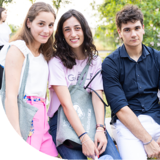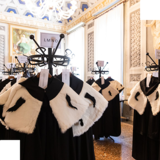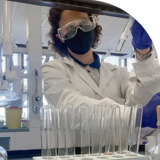The Faculty of Education participates with its own teaching, organisational and research resources, together with the "A. Gemelli" Faculty of Medicine and Surgery, in the activation of this inter-faculty graduate degree programme.
Skills/knowledge
The educational pathway of the graduate programme in "Sciences and Techniques of Preventive and Adapted Motor Activities" is divided mainly into medical andmotoradapted subjects and aims to offer an organic framework of knowledge and theoretical and practical skills related to the maintenance of health through movement and the practice of motor activity, throughout life. The programme also aims to provide knowledge and skills related to the adaptation of motor and sports activities to the individual with disabilities.
Students will acquire a specific preparation regarding the fundamental dimensions of the motor disciplines, also taking into account the contribution of the bio-medical, pedagogical, psychological and sociological ones, which together contribute to defining the professional profiles promoted by the graduate degree programme.
The proposed itinerary will allow the formation of a culture of physical activity and sport as essential factors for the prevention of illnesses, physical-motor and sports education for the person with disabilities.
Training project
More specifically, during the first year of the programme, the student will have the opportunity to:
- learn and critically analyse the possibilities of applying the foundations of the psychopedagogical disciplines to the field of health maintenance;
- learn and critically analyse the physiopathological bases of the main forms of neurological disability, in order to acquire the cultural tools to plan motor activity in individuals with disabilities;
- learn and critically analyse the physiopathological bases of the main metabolic, cardiovascular, respiratory and nervous system diseases, so as to be able to prevent or delay their onset by planning the necessary motor activity;
- learn and critically analyse the physiopathological bases of the main diseases of childhood, so as to be able to prevent their onset by planning the necessary motor activity;
- acquire the appropriate methodological tools to start collaborating in original scientific research projects aimed at understanding the mechanisms through which motor and sports activities help prevent diseases.
In the second year of the programme, students will have the opportunity to:
- learn and critically analyse the possibilities of applying the foundations of sociological disciplines to the field of health maintenance;
- design, propose and manage educational, training and post-rehabilitation recovery paths and protocols through movement;
- learn and critically analyse the physiopathological bases of the main forms of neurological disability, in order to acquire the cultural tools to plan motor activity in individuals with disabilities;
- learn and critically analyse the physiopathological bases of the main metabolic, cardiovascular, respiratory and nervous system diseases, so as to be able to prevent or delay their onset by planning the necessary motor activity;
- learn and critically analyse the physiopathological bases of the main diseases of senile age, so as to be able to prevent their onset by planning the necessary motor activity;
These objectives will be achieved with the activation of an adequate number of courses and integrated courses in the MED and M-EDF / 01 sectors which, in addition to the theoretical part, provide a high practical content to be carried out in suitable motor and sports facilities such as gyms and fields. equipped. The teaching will be divided into classroom lectures or seminars, technicalpractical demonstrations in the field and individual exercises with the use of advanced tools for analysing the state of physical fitness, apprenticeships and internships at affiliated structures of the territory qualified in the preventive field, post-rehabilitation and adaptive. The verification of the acquisition of these skills will take place through final and ongoing assessment tests, proposed in written, oral and practical form and the evaluation of plans and work protocols developed by the student and adapted to age, gender, disability and the recovery situation and, finally, through the realisation of a thesis on a topic relevant to the course of studies.





